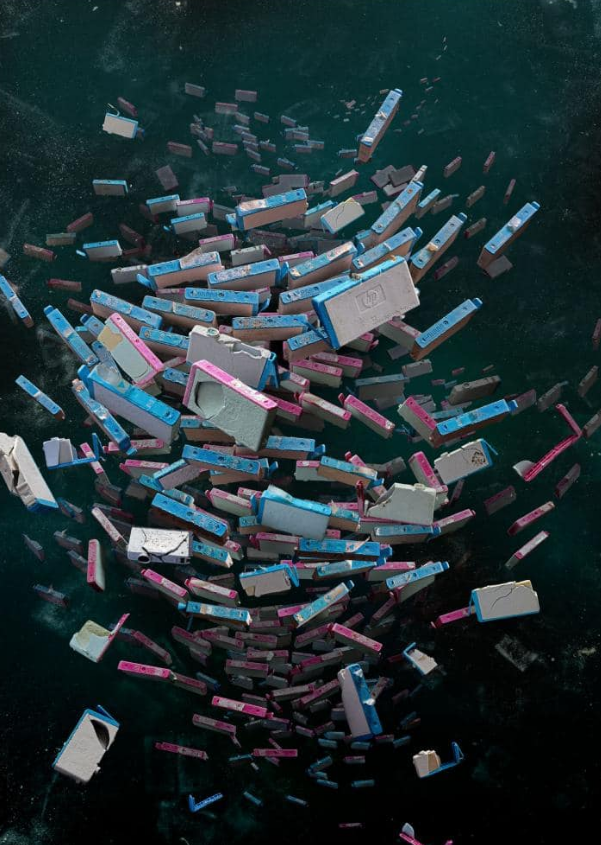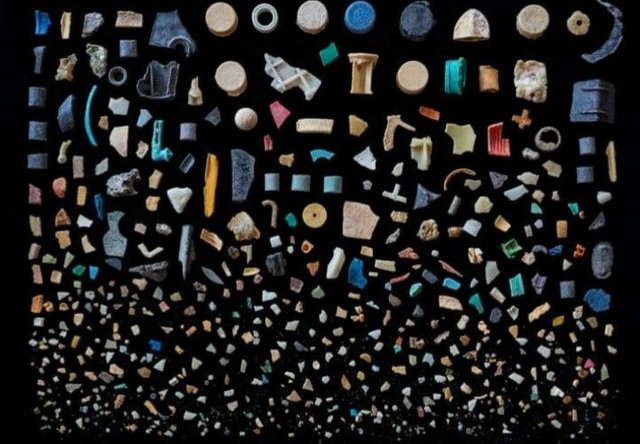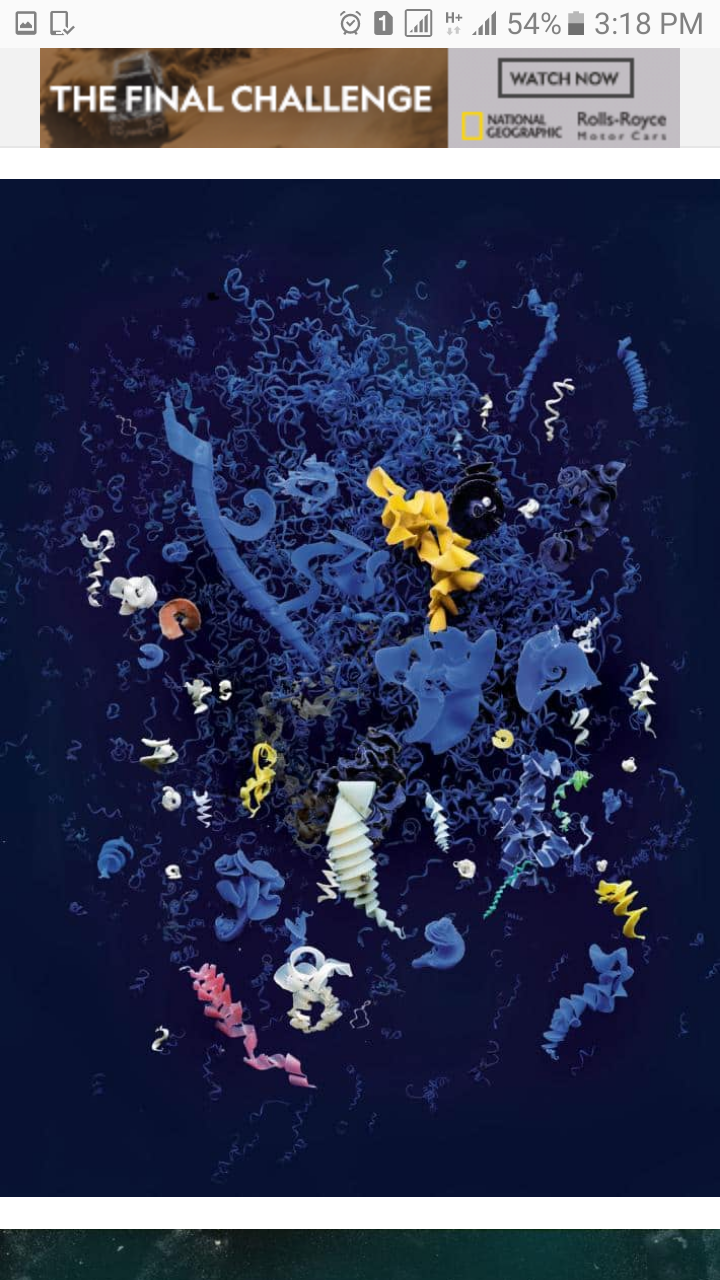When photographer Mandy Barker returned to the English beach where she collected shells as a child, she found a baby’s car seat and a refrigerator among piles of plastic waste. She also noticed an air of indifference: It seemed to her that people weren’t fazed by seeing a beach strewn with litter.

So she changed the context. By collecting pieces of plastic waste and photographing them on a plain background, Barker found that the trash became shocking again. “I wanted to create something that would resonate,” she says.

That impulse has led to a series of photographic projects that illuminate plastic’s ubiquity as well as its reach—how printer cartridges that spilled off a ship in the Atlantic Ocean, for example, washed up on beaches from North Africa to Norway. Or how discarded bottle caps, from the hundreds of billions of plastic bottles that are manufactured each year, turn up on beaches—and in birds—around the world.

She plans her projects in collaboration with marine scientists. The photos “give science a visual voice,” she says, conveying plastic’s impact on the natural environment in a way that scientific research papers can’t. Barker feels in her gut the reality that no area in the world is free from plastic anymore, “from the poles to the Equator, from the sea surface to the ocean floor.” She wants the rest of us to feel it too.
Credit: Natasha Daly
Photographs by Mandy Barker
From: National Geographic
Hi! I am a robot. I just upvoted you! I found similar content that readers might be interested in:
https://www.nationalgeographic.com/magazine/2018/06/plastic-planet-art-pollution-waste/
Downvoting a post can decrease pending rewards and make it less visible. Common reasons:
Submit
You got a 2.37% upvote from @brupvoter courtesy of @fanservice!
Downvoting a post can decrease pending rewards and make it less visible. Common reasons:
Submit